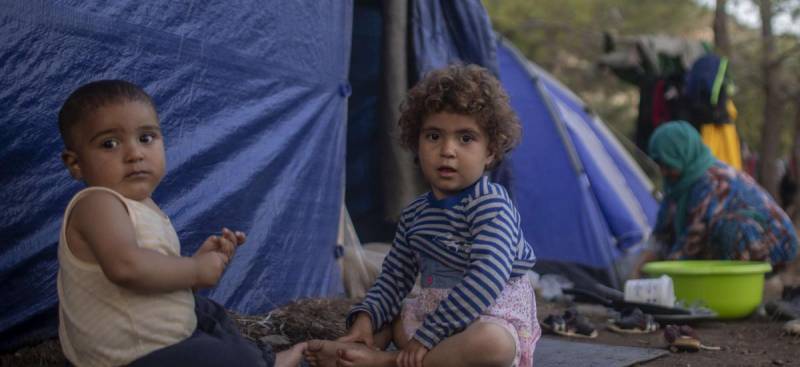Turkey’s eastern province of Van has been the first stop for refugees from Iran and Afghanistan for a long time.
Some of these refugees have been waiting in Van for years until their asylum application is accepted by a third country. I know babies that have grown up during these waiting years.
An Iranian refugee who spoke at a symposium on international migration organised by the United Nations 12 years ago, where I was one of the speakers, said that she had been waiting for her asylum request to be accepted by a third country for 11 years, away from her family.
Back then, the city was full of refugees expecting to settle in another country. But they had to start a new life in Turkey since the asylum process is a running battle.
Van is gradually becoming a refugee graveyard.
A boat, believed to have been carrying 60 to 100 migrants from Afghanistan and Pakistan, capsized in Lake Van in stormy weather on June 27. Search-and-rescue teams located the wreckage just last week. Since then, dead bodies have been coming ashore. Officials have discovered 37 bodies so far. Search-and-rescue teams continue their efforts.
As far as we learn from the news, smugglers chose to cross the lake to avoid police and military checkpoints located along traditional transit routes used to traffic migrants into Turkey from Iran, especially to bypass the one in the Reşadiye district.
There is no checkpoint after Reşadiye. From there, refugees walk nearly 30 km to the bus terminal in the Tatvan district of the neighbouring Bitlis province. From there, they go to Istanbul by bus to find a job.
Refugees freeze to death in the bitter cold during winter while they are trying to cross the border. When the snow melts, their bodies appear. Especially in Çaldıran, Özalp and Başkale districts, authorities find bodies of refugees shredded by animals.
So, how has Van turned into a death pit?
The United Nations High Commissioner for Refugees (UNHCR) had an office in Van for many years. Having an office where they could access the asylum procedure was very valuable for refugees arriving in Van. Refugee status determination was carried out in Van, the province was not a way of death for refugees but a solution centre.
Unfortunately, nine years ago, the U.N. closed the office and left the majority of tasks to the Turkish state. Thus, the refugees reaching Van from Turkey’s eastern border lack access to an effective asylum procedure. In a sense, they are now doomed to uncertainty. For this reason, they try to reach Istanbul or European countries through irregular ways by risking their lives.
Border control has also been tightened in recent years. Despite the so-called border checks, hundreds of refugees can cross these borders every month, often in bulk.
Mahmut Kaçan, a lawyer from the Van Bar Association who has been working with these refugees for many years, said this was baffling.
“On one hand, there is increased border security with cameras and soldiers all around, but many refugees can enter Turkey,” Kaçan said. “Refugees enter Van through two spots, Çaldıran and Başkale, authorities even know the border villages that refugees have access to. There is a problem if so many people can cross the border freely. There is neglect, encouragement and impunity. It is clear that there is corruption at the border.”
Another Van resident I met spoke of the same thing. “How can so many refugees cross the border despite several drones and cameras?” they asked. “There is a human trafficking network here. We need to reveal it.”
The families of refugees in the capsized boat were looking forward to hearing from their children, siblings, fathers and mothers. Many now hope the Turkish authorities find dead bodies of their loved ones.
There are things that could be done to prevent these horrible deaths from happening again.
Refugees die in Van, either by freezing to death or drowning in the lake. The responsibility falls to the relevant institutions and international organisations in Turkey, especially the U.N. Let’s solve these problems together.
Van should not be a place of death for refugees, but a place of hope to start a new life.
